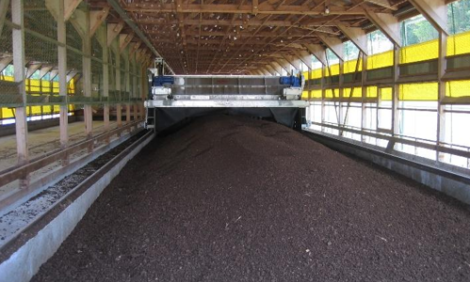



How to make positive changes to the microbiome of animals
Niel Baxter, a researcher with Elanco Animal Health, explains how changing the microbiome of animals can improve their performance.“I talked a little bit about ways in which we can change the metabolism of the microbiome in a way that improves it, and ultimately could impact animal performance,” said Niel Baxter. “Certain microbes can have a disproportionately big impact on the metabolism of microbiomes, and for nutritional products to work consistently and predictably in animals, it’s reliant on certain species in the microbiome to be present. I discussed how certain microbes are important for fiber digestion and also for the production of volatile fatty acids like butyrate.”
In the microbiome and any microbial ecosystem, the species do not perform in isolation - what happens with one species affects the others. The metabolites produced by one species could be the food for another. This is why it’s necessary to consider individual microbes in the context of that food web, that specific ecosystem, and how it's going to impact other species and all the other metabolites that they produce.
“When wolves were hunted to extinction in Yellowstone Park,” said Niel Baxter. “It had a lot of impacts on the ecosystem of Yellowstone, and not just on the prey, like elk, but also on many different species in the ecosystem. There was sort of this ripple effect through the ecosystem that affected many different species and even the shape of the landscape of the park. I use that as an example to highlight what a probiotic could be in animal health, like a single species that if it's introduced in the right way, it could have a wide-ranging impact on the function of the microbiome and on the health of the animals.”
Any effect that occurs in the microbiome may benefit some species or hurt others. The goal is to find the right combination that supports the most beneficial microbes and inhibits pathogens that would cause disease. With farm production, the goal is to take these nutritional products like probiotics, prebiotics and enzymes, and be able to understand how we can get predictable and consistent effectiveness from them.
It’s important to learn and know how the microbiome of an animal is going to affect how effective a probiotic or an enzyme is. Then producers can look at the microbiome of an animal, look at its composition, and then predict whether or not a nutritional supplement is going to be right, he explained.
“We want to be able to tailor a specific nutritional product or combination of products that are going to work best for the producer, based on the microbiome of their animals,” said Baxter. “That's the goal and what we're striving for, so that for every single individual farm, we know the microbiome of those animals, we know which nutritional products are most likely to be effective, and then we can make a recommendation of what will work and what won't work for that particular producer.”









